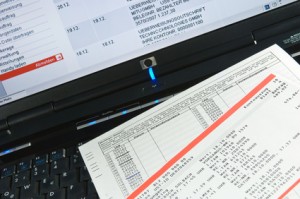What are Your Legal Rights Regarding Overdraft Charges?
 There are two kinds of overdraft, these are unauthorised overdrafts and authorised overdrafts. If you are being charged by your bank for an overdraft that is unauthorised the charges will be far higher than the overdraft charges for an authorised overdraft.Charges
There are two kinds of overdraft, these are unauthorised overdrafts and authorised overdrafts. If you are being charged by your bank for an overdraft that is unauthorised the charges will be far higher than the overdraft charges for an authorised overdraft.Charges
Banks will charge interest for the amount overdrawn and for every day you remain overdrawn. Also it is down to the banks discretion whether they will charge extra for administration fees. It has been known for these charges to run into the hundreds in some cases.
If you find yourself in financial difficulties as a result of overdraft charges you should speak to your bank. Remember, as a consumer you have rights, and it is the legal requirement of the bank to ensure that you are treated in accordance with the Lending Code. The lending code is set in place to protect lenders who find they are in financial difficulty. If you feel your bank is not dealing with your specific case in a sympathetic manner which reflects the guidelines of the Lending Code then you have the right to take your complaint to the Financial Ombudsman Service.
It is your right to complain to the Ombudsman if you feel your bank has taken the wrong decision in granting you with the overdraft, as it is up to the bank to fully assess whether or not the customer is able to afford the loan or overdraft. If the Ombudsman can sufficiently show that the overdraft charges are unacceptable because the customer was not able to make rational choices at the time of agreeing to the overdraft then alternative arrangements can be made.
What next?
In the most exceptional cases the full amount of the debt can be written off. However, in most cases once all the evidence has been looked it is possible that some of the loan may be written off, a reduced payment plan may be put into place or an interest free period could be negotiated.
Picture: Harald Richter
